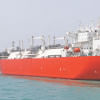Hike in energy prices fails to improve supply

The perennial energy crisis of industries in Bangladesh remains unresolved even though energy prices have been hiked considerably to offset government subsidies in the sector and facilitate industrial productivity.
Entrepreneurs in the country have long been complaining about how they spend exorbitant amounts to set up industrial units, but still lack adequate gas pressure to run operations at full capacity.
Besides, many factories are being forced to partially stop production due to the dwindling gas supply.
And although some entrepreneurs say the situation has improved a bit, the prevalence of load-shedding is affecting industries every day.
As a result, many units have been running at 50 percent capacity even though they need to run at full steam to offset losses incurred because of the severe fallouts of Covid-19 and the Russia-Ukraine war.
Mohammad Ali Khokon, president of the Bangladesh Textile Mills Association, said the gas situation is not improving at the expected rate as many members of the platform for primary textile millers complain about it almost every day.
"Many mills are even having to operate for up to six hours at night, when the gas pressure improves," Khokon said. Also, some mills are operating on compressed natural gas purchased from filling stations.
However, the ones suffering the most are dyeing units, which are running at 30 percent capacity due to the gas shortage, he added.
Mohammad Hatem, executive president of the Bangladesh Knitwear Manufacturers and Exporters Association, echoed the same.
Hatem said that mills and factories at estates of the Bangladesh Small and Cottage Industries Corporation (BSCIC) in Narayanganj have been suffering a lot due to low gas pressure.
"Previously, industrial units in BSCIC areas would run at night, when the gas pressure improves. But over the past week, the gas pressure has been low at night also. As a result, many have stopped production," he added.
Shahidullah Azim, vice-president of the Bangladesh Garment Manufacturers and Exporters Association, said load-shedding has been affecting production.
"Factory owners are now in a fix as they have to pay higher electricity bills as well as face loss of production amid the economic slowdown in both domestic and international markets," he added.
Sameer Sattar, president of the Dhaka Chamber of Commerce and Industry, agreed that the gas and power supply did not improve at the expected level, as evinced by how millers and factory owners are still complaining about it.
On the other hand, Md Saiful Islam, president of the Metropolitan Chamber of Commerce and Industry, said the gas and power supply have nearly reached the expected level.
"The productivity of mills and factories could improve now," he added.
In January this year, the government raised the retail price of gas by 14.5 percent to 178.9 percent for industries, power plants and commercial establishments, who together account for 78 percent of the gas usage in Bangladesh.
The government made this move to lessen its unsustainable subsidy burden amid a narrow fiscal space, according to a report published on The Daily Star.
The development is set to fuel a fresh round of inflation, which declined for the fourth month straight in December last year.
So, from February this year, the price of gas used for power generation was made Tk 14 for each cubic meter, up 178.9 percent from the previous rate.
Meanwhile, the rate for gas at captive power plants and industries was hiked to Tk 30 per cubic meter.
The hike was 150 percent for large industries, 154.7 percent for medium industries and 178.3 percent for small and cottage industries. For captive power plants, it was an increase of 87.5 percent.
For commercial establishments like hotels and restaurants, the rate is Tk 30.50 per unit, up 14.5 percent from the previous rate.
Bangladesh spent more than $8 billion on energy imports over the last one year due to price hikes in the international market, industry people said.
Industries account for about 18 percent of the total gas sales while the power sector consumes 42 percent, and captive power, which is mainly used by private sector mills, takes up 17 percent.

 For all latest news, follow The Daily Star's Google News channel.
For all latest news, follow The Daily Star's Google News channel. 








Comments